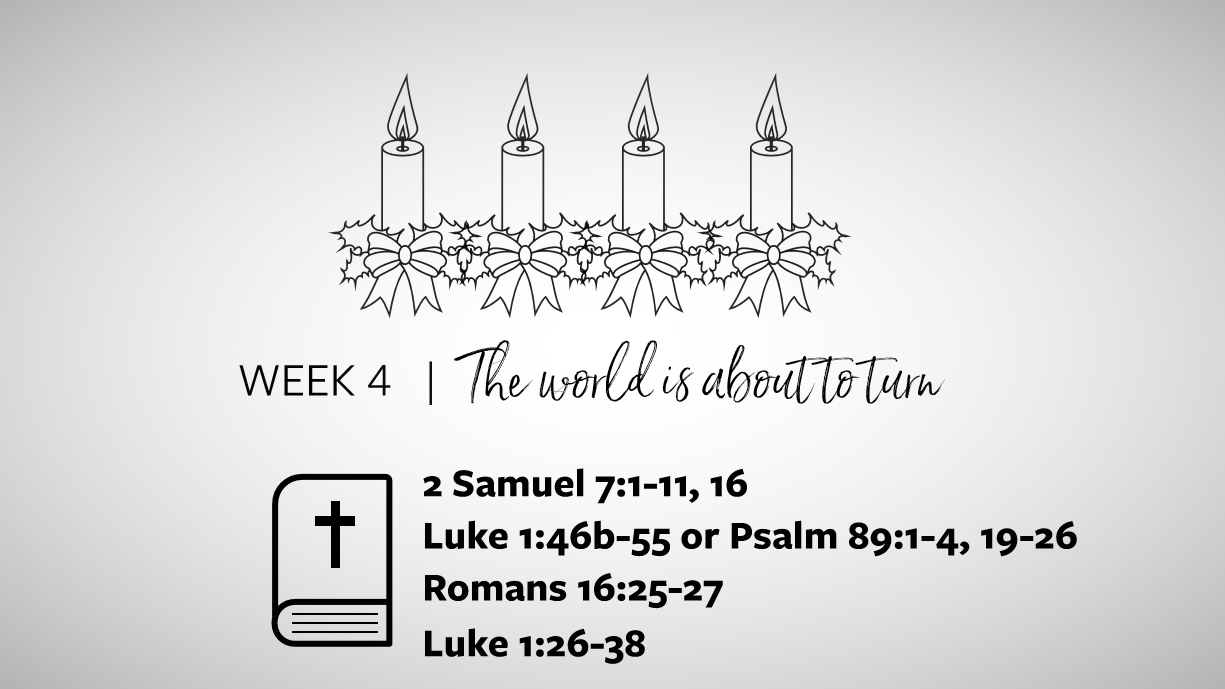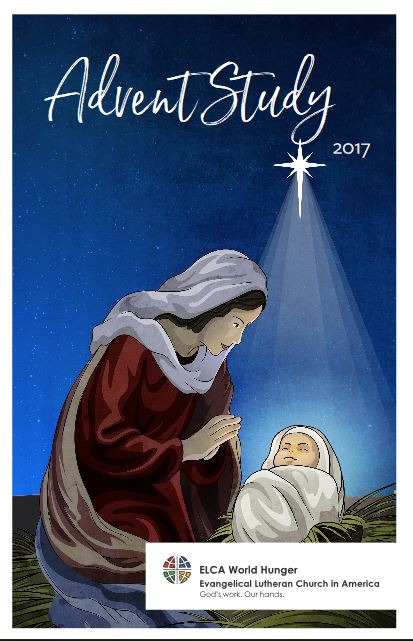From the halls of power to the fortress tower,
not a stone will be left on stone.
Let the king beware for your justice tears
every tyrant from his throne.
The hungry poor shall weep no more,
for the food they can never earn;
These are tables spread, ev’ry mouth be fed,
for the world is about to turn.
-Canticle of the Turning ELW 723
Mary’s Magnificat in the Gospel of Luke, paraphrased in Rory Cooney’s 1990 “Canticle of the Turning,” is a powerful testimony of the fulfillment of God’s promise to those for whom the current state of the world just isn’t working. It is a striking testimony to the depth and breadth of God’s love and the significance of God’s promise, a promise that includes not only eternal salvation but also justice here and now.
The Food and Agriculture Organization of the United Nations estimates that there are nearly 815 million people who are undernourished worldwide. This is a tremendously positive change from the early 1990s, when more than a billion people lacked access to sufficient food.
Change is possible. But so much more work needs to be done.
For the first time in a decade, famine was declared this year, with more than 100,000 people in South Sudan caught in the midst of a humanitarian crisis. One million more people in South Sudan were at severe risk of famine. That’s not even to mention the other countries where the risk of famine is imminent: Yemen, Somalia and Kenya. Access to this most basic of needs – food – is rapidly eroding for many of our neighbors. At the same time, many others have been driven from their homes by violence, drought and fear, their arrival in refugee camps and on coastlines and borders challenging the depth of our commitment to hospitality for the stranger.
In Advent, we focus a lot on waiting, expectation and hope for the future. But for our neighbors who hunger, thirst and flee now, the church’s witness cannot just be about the future. And as Lutherans, we know it is not. The world is about to turn, certainly, but Advent is also a celebration that the world has turned, that the fulfillment of God’s promise has already begun.
Mary’s Magnificat is more than a song of anticipation. It is a song of invitation, inviting us to “magnify” the One who has “done great things…shown strength with God’s arm…scattered the proud…put down the mighty…exalted those of low degree…filled the hungry with good things [and] helped God’s servant Israel” (Luke 1:49-54). Mary’ song recalls Isaiah’s prophecy and points forward to Jesus’ declaration:
“Today, this scripture has been fulfilled in your hearing” (Luke 4:21).
The Christmas season that the end of Advent ushers in is just the beginning of the work of God through the church in the world.
In the first session in this study, we began at the end, and now, we end at the beginning. Mary’s song invites us to carry the promise of God forward, to take with utter seriousness the task ahead, with faith that the world has turned, is turning and will continue to turn as God’s promises unfold. It is an invitation to see Advent as preparation for both the bright dawn of Christmas and the work that lies ahead.
Theologian and poet Howard Thurman in his reflection on Christmas captures this sense of initiation in his poem, “The Work of Christmas.”
When the song of the angels is stilled,
When the star in the sky is gone,
When the kings and princes are home,
When the shepherds are back with their flocks,
The work of Christmas begins:
To find the lost,
To heal the broken,
To feed the hungry,
To release the prisoner,
To rebuild the nations,
To bring peace among the people,
To make music in the heart.
We end at the beginning. Advent commemorates Mary’s preparation for a new life growing inside her, a life that represents the coming of a new era. This new life is a turning that brings hope to those who have lived in desperation – and brings anxiety to the powerful who have fostered injustice. Advent is also a story of God’s preparation of us, preparing our church to reveal the transformation of the world that again will offer hope to those who continue to live in desperation – and will again bring potent anxiety to those who continue to foster injustice.
Reflection questions
- What does Mary’s Magnificat mean for us today?
- Looking back on the past year, how has our congregation borne witness to God’s promise of hope for our world? For our local community?
- How can or has our Advent journey prepared us for “the work of Christmas” year-round?
- Reflect on each of the lines of the verse from “Canticle of the Turning” and Thurman’s poem quoted above. Which “works of Christmas” in Thurman’s poem highlight the church’s role in revealing the changes God is enacting in the song?
Prayer
Merciful God, you have filled the hungry with good things, remembered your people Israel in your mercy, and lifted up all those of low estate. Grant that we may be filled, remembered and lifted up this Advent. May the work of your promise within us inspire our work of Christmas within our world. Bless our efforts toward justice, peace and wholeness for all creation. In your holy name. Amen.
Hymn suggestions
Canticle of the Turning ELW 723
O Day of Peace ELW 711
Hark, the Glad Sound! ELW 239
To download this entire study, or to see some of our other congregational resources, please visit www.elca.org/Resources/ELCA-World-Hunger.


